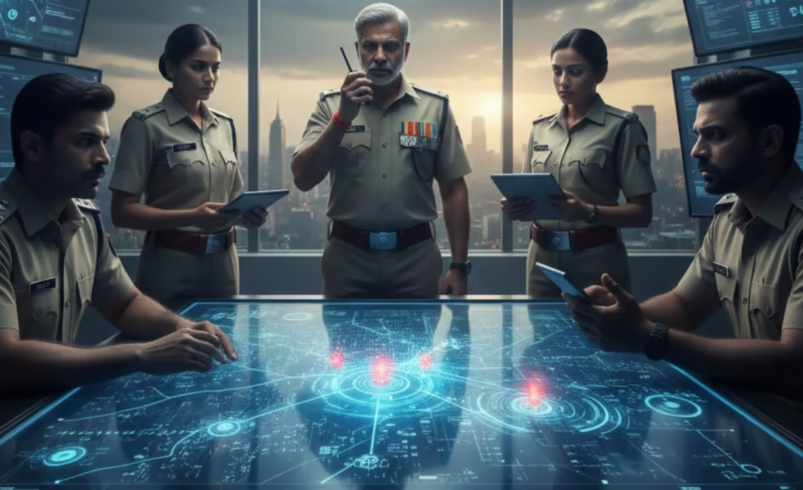Delhi Police launch major crackdown on organised crime networks
- October 7, 2025
- 0

Delhi Police have initiated a sweeping plan aimed at dismantling organised crime networks across the capital. The new strategy focuses on both the masterminds and the lower-level operatives who sustain these criminal enterprises. By combining intelligence sharing, financial scrutiny, and coordinated field operations, authorities aim to curb the influence of gangs operating within and beyond city limits.
The initiative represents one of the most extensive efforts by Delhi Police to date in addressing organised crime. Officials have introduced a structured standard operating procedure (SOP) that outlines how teams will identify, monitor, and neutralise gang operations. This SOP ensures that every level of enforcement — from local police stations to specialised units — follows a unified approach when dealing with criminal syndicates.
A central feature of the plan is its dual focus on gang leaders as well as their ground-level operatives. While previous efforts often concentrated on high-profile arrests, this strategy seeks to disrupt entire networks by cutting off their manpower and logistical support. By weakening the foundation of these groups, police hope to prevent them from regrouping or re-establishing control in affected areas.
Recognising that money flow sustains organised crime, Delhi Police are placing strong emphasis on tracing financial transactions linked to illegal activities. Dedicated teams will work closely with financial institutions and investigative agencies to uncover hidden assets, money laundering channels, and funding routes used by criminal organisations. This financial mapping is expected to expose connections that extend far beyond local boundaries.
The success of this operation depends heavily on inter-agency coordination. Law enforcement bodies are joining forces with intelligence units and other government departments to share data and resources in real time. Such collaboration aims to ensure that fugitives or associates operating from outside India are also brought under investigation through international cooperation mechanisms.
Delhi Police have also turned their attention toward individuals who continue to direct or fund criminal activities from overseas locations. By working with national and international partners, authorities intend to track these figures through digital footprints, communication channels, and cross-border financial transactions. The goal is to ensure that distance no longer provides protection for those orchestrating crimes remotely.
The newly launched plan marks a decisive shift in how Delhi Police approach organised crime — moving from reactive enforcement toward proactive disruption of entire networks. With its focus on leadership structures, financial systems, and global linkages, the initiative aims not only to curb immediate threats but also to create long-term deterrence against future gang activity across the capital region.